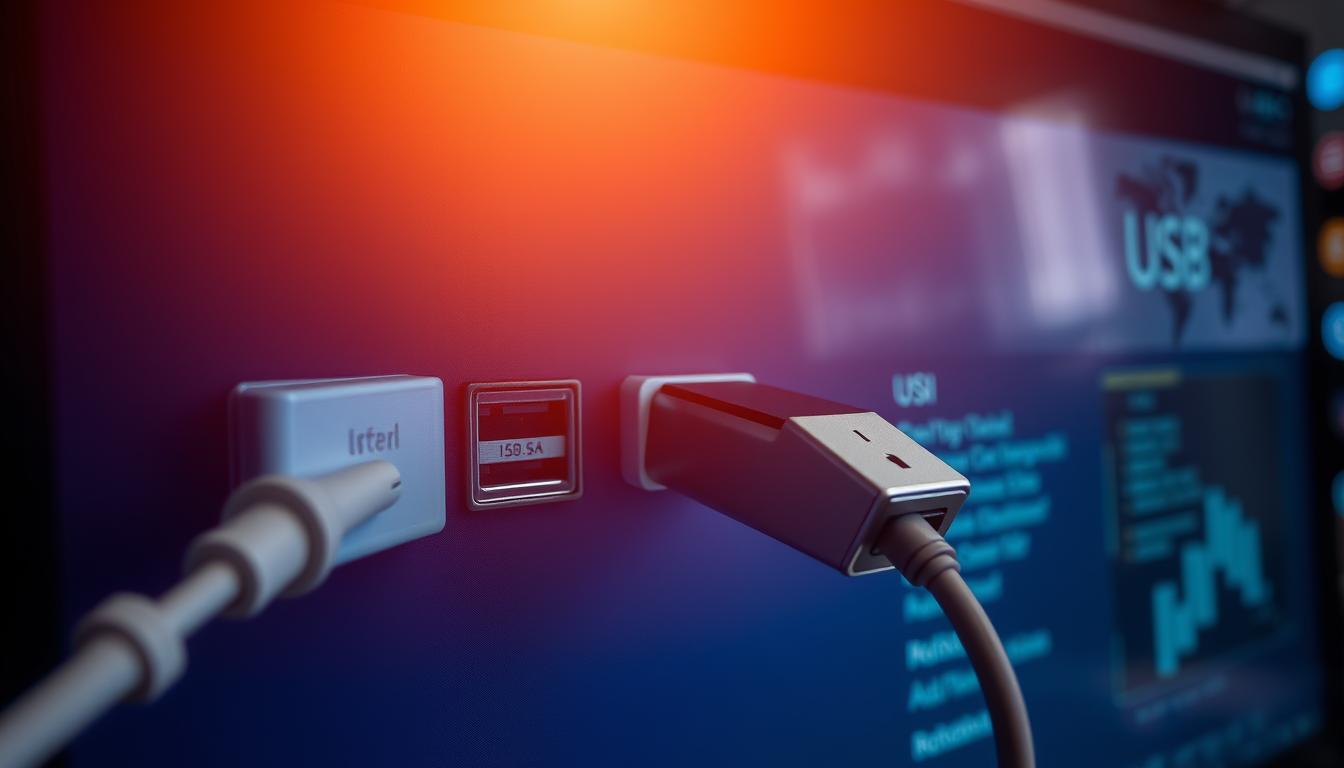How to get usb device name in windows 10: Are you having trouble figuring out your USB devices on Windows 10? It can be hard to keep up with your USB peripherals, especially when you’re trying to fix a connection or update a driver. But don’t worry, we’re here to show you how to easily find the name of any USB device connected to your system.
Key Takeaways
- Discover the built-in tools in Windows 10 that make identifying USB devices a breeze.
- Learn how to access the USB Device Manager and explore your connected devices.
- Uncover the details of your USB devices, including their names, to troubleshoot issues or update drivers.
- Gain the knowledge to keep track of your USB peripherals and ensure they’re functioning properly.
- Enhance your Windows 10 experience by mastering the art of USB device identification.
Identifying USB Devices in Windows 10
Finding USB devices on your Windows 10 computer is easy with the right tools. The USB Device Manager is a great tool that shows you all the USB devices connected to your system.
USB Device Manager
To open the USB Device Manager, just follow these steps:
- Open the Start menu and search for “Device Manager”.
- Click on the “Device Manager” app to launch it.
- In the Device Manager window, look for the “Universal Serial Bus controllers” section.
- Expand this section to see a list of all the USB devices connected to your computer.
The USB Device Manager lists all connected USB devices. It also shows important info like usb device properties, usb device driver, and usb device enumeration.
Checking USB Device Properties
To see USB device names, check the device properties. Here’s how:
- Right-click on the USB device you want to look at in the Device Manager.
- Select “Properties” from the context menu.
- In the device properties window, you’ll see detailed info about the usb device information. This includes the device name, manufacturer, and other important usb hardware detection details.
Using the USB Device Manager and checking device properties helps you easily find and manage the usb device listing on your Windows 10 computer.
How to Get USB Device Name in Windows 10
Knowing your USB device names is key for managing and fixing your Windows 10 system. It helps with updating drivers, checking device properties, and organizing your peripherals. We’ll show you how to identify USB device names using the USB Device Manager and other tools in Windows 10.
To get the name of a USB device, start with the USB Device Manager. Press the Windows key + X and pick “Device Manager” from the menu. Or, search for “Device Manager” in the Windows search and open it from there.
- In the Device Manager, find the “Universal Serial Bus controllers” section.
- Expand this section to see all USB devices connected to your computer.
- Right-click on the USB device you want to identify and choose “Properties”.
- In the device properties window, the device name is under the “General” tab.
Another method to get the USB device name is through the Device Information tool in Windows 10. Here’s how to find it:
- Open the Start menu and search for “Device Information”.
- In the Device Information app, you’ll see a list of connected USB devices, their names, and other details.
Knowing the USB device name is important for many tasks. This includes updating drivers, troubleshooting issues, or organizing your system. Windows 10’s built-in tools help you easily find and manage your USB peripherals.
| Windows 10 USB Troubleshooting Tools | Description |
|---|---|
| USB Device Manager | Allows you to view and manage all connected USB devices, including their names and properties. |
| Device Information | Provides a comprehensive list of USB devices with detailed information, including the device name. |
| USB Troubleshooter | Helps diagnose and resolve common USB-related issues, such as device malfunctions or driver problems. |
Using these Windows 10 USB troubleshooting tools, you can efficiently identify USB device names. This helps you manage your peripherals and keep your system running smoothly. Remember, keeping track of your USB device names is key to a well-organized Windows 10 setup.
Conclusion
In this article, we looked at how to find the name of USB devices on a Windows 10 system. Using the Device Manager and checking device properties helps you get the names of your USB devices. This info is key for fixing problems, updating drivers, or just knowing what hardware you have.
It’s important to know the name of your USB devices to manage your system well. Whether it’s a USB drive, printer, or another device, the steps in this guide will help you. You’ll get the info you need to manage your devices better.
With the steps from this article, you can handle USB devices in Windows 10 with confidence. Knowing your hardware well helps your computer work better. It also makes using your computer a better experience.

